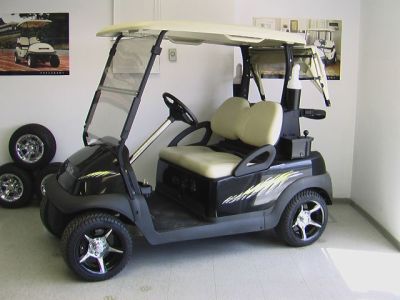Top 10 Myths About Batteries

1. STORING BATTERIES ON A CONCRETE FLOOR WILL DISCHARGE THEM.
A hundred years ago when batteries were made of porous material, (such as wood), storing batteries on concrete would indeed accelerate their discharge. Modern battery cases are made of polypropylene or hard rubber, which are better sealed, so external leakage causing discharge is no longer a problem. However, the top of the battery must be kept clean and dry.
2. DRIVING A CAR WILL FULLY RECHARGE A BATTERY.
Some factors affecting a car charging system’s ability to charge a battery are; how much current from the alternator is diverted to the battery, how long the current is available and the temperature. If your battery has been discharged because the headlights were left on, idling the engine or short stop and go trips during bad or hot weather or at night will not fully recharge a battery. A long daytime trip in warm weather (like from Kelowna to Saskatoon) should fully recharge a starting battery.
3. A BATTERY WILL NOT EXPLODE.
Recharging a wet lead-acid battery normally produces hydrogen and oxygen gases. While spark retarding vent caps help prevent battery explosions, they can occur when jumping, connecting or disconnecting chargers or battery cables, and starting the engine. While not likely fatal, battery explosions cause thousands of eye and burn injuries every year. When battery explosions occur while starting an engine, here is the usual sequence of events: one or more cells had a high concentration of hydrogen gas (above 4.1%) because the vent cap was clogged or a valve did not release the gas. The electrolyte levels fell below the top of the plates due to high under the hood temperatures, overcharging or poor maintenance. A low resistive bridge or treeing formed between the tops of the plates such that when the current started to flow, it caused an arc or spark in one of the cells. That combination of events ignites the gas, blows the battery case cover off and splatters electrolyte all over the engine compartment (at the very least). The largest number of battery explosions while starting an engine occurs in hot climates.
4. A BATTERY WILL NOT LOSE ITS CHARGE SITTING IN STORAGE.
Depending on the type of battery, it has a natural self discharge or internal electrochemical leakage rate of 1% to 15% per month that will cause it to become sulphated and fully discharged over time. Higher temperatures accelerate this process. A battery stored at 35 degrees Celsius will self discharge twice as fast than one at 23.9 degrees Celsius.
5. MAINTENANCE FREE BATTERIES DO NOT REQUIRE MAINTENANCE.
A maintenance free battery still must be kept fully charged when in storage and the case clean and dry. Make sure all terminals (top or side) are clean of corrosion. You will not be able to add lost water due to excessive charging or evaporation in high temperature applications.
6. TEST THE ALTERNATOR BY DISCONNECTING THE BATTERY WITH THE ENGINE RUNNING.
A battery acts like a voltage stabilizer or filter to the pulsating DC produced by the charging system. Disconnecting a battery while the engine is running can destroy the sensitive electronic components, for example, emission computer, audio system, cell phone, alarm, system etc, or even the charging system itself. These damages can occur because the voltage can rise up to 40 volts or even more. In the 1970’s, removing a battery terminal was an accepted practice to test charging systems of that era, but not so today. Just say NO if anyone suggests this.
7. PULSE CHARGERS, ASPIRINS OR ADDITIVES WILL REVIVE SULPHATED BATTERIES.
Using pulse chargers or additives is a very controversial subject. Most battery experts agree that there is no conclusive proof that more expensive pulse chargers work any better than constant voltage chargers to remove sulphation. There is no evidence that additives or even aspirins provide any long term benefits.
8. ON REALLY COLD DAYS, TURN ON YOUR HEADLIGHTS TO WARM UP THE BATTERY BEFORE STARTING THE ENGINE.
While there is no doubt that turning on your headlights will increase the current flow in your battery, it also consumes valuable capacity that could be used to start your engine.
9. BATTERIES LAST LONGER IN HOT CLIMATES THAN IN COLD ONES.
Batteries last approximately two thirds as long in hot climates as cold ones. Heat kills batteries.
10. DEEP CYCLE BATTERIES HAVE A MEMORY.
Lead acid deep cycle batteries do not have the so-called memory effects that first generation Ni-Cad batteries have.
